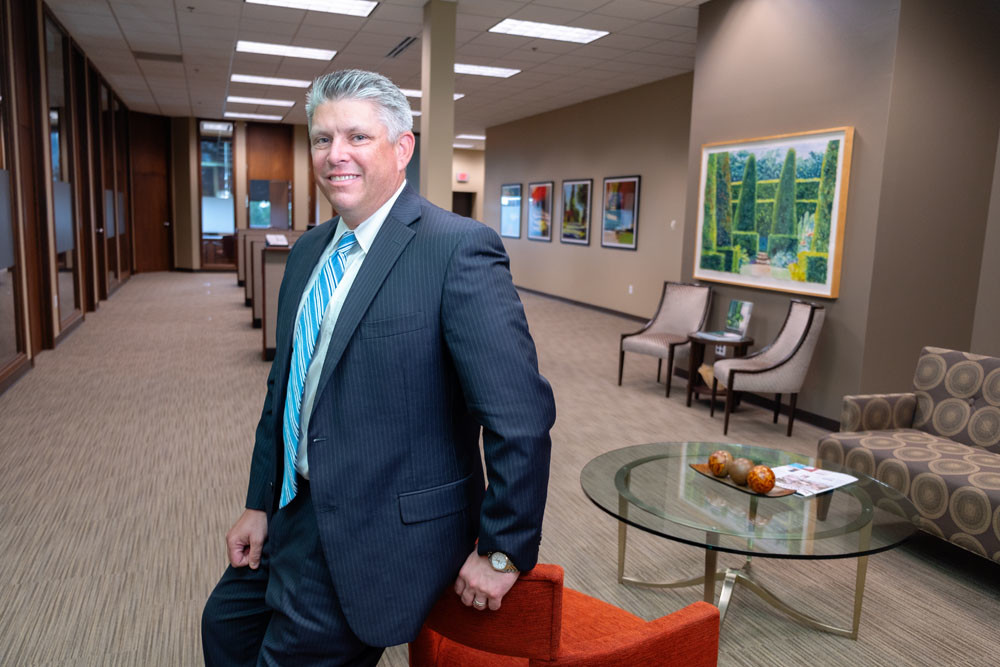YOUR BUSINESS AUTHORITY
Springfield, MO
YOUR BUSINESS AUTHORITY
Springfield, MO

Several surveys indicate up to 55 percent of Americans have no will or estate plan. Why is that?
That’s kind of a trick question: 100 percent of Americans have an estate plan, and it’s called probate law. If you don’t do anything, the government will tell you what to do. Most people choose to take action against that and come up with a will or a full-blown estate plan, which will include a will, a revocable living trust and durable powers of attorney for health care, as well as financial. A lot of people just feel it’s hard to take the time to do it. They don’t think it applies to them – that a will or an estate plan is something that is only for folks that have a certain level of assets. The reality is it applies to everybody that owns anything.
Is there a trigger point for someone to go beyond a will?
A lot of things can be handled though basic titling and a will. When you get into the estate planning side and you get the revocable living trust, you’re really looking for more comprehensive control to cover more possibilities. It will cover you not just in death but also in the event of incapacity. It gives you further control from the grave, so to speak, in the sense that you can really give detailed instructions and steps you’d like to see in the event of your passing.
We are in the midst of the largest transfer of wealth in this country. It was determined in 2013 that in Greene County alone over the next decade, $6.65 billion will transfer hands. Are you seeing evidence of that wealth transfer?
It is going to be unprecedented. Especially with the new tax law changes, you are starting to see a lot of families that might be pushing up against that higher net-worth level of the $22-plus million that you can transfer on. [They’re] doing some aggressive estate planning right now in order to take advantage of their lifetime exemption against the estate tax. It’s supposed to sunset in 2025, into 2026, so you’re seeing people really taking an active role in it. We see people retire every day, and it’s not just family businesses or large sums of wealth, but most people have been putting into their 401(k) their entire working career and that has continued to grow. A lot of folks are looking at how do we transition to live off of it and ultimately leave it onto our heirs.
What are the first steps to creating a will or estate plan?
We tell people to get a list together of what they feel they own. That includes everything from insurance policies to 401(k) plans to a home or any other property that might be of value – whether it’s sentimental or economic value – and some instructions or directions that they’d like to see that their family follows. Start gathering the assets and start to think about how you would like those transitioned.
What are the most common pitfalls as you’re going through this process?
We have a saying, “If you’ve met one family, you’ve met one family.” Every family is unique. Family dynamics are typically the biggest challenge, and as a corporate trustee, we typically step in and, for lack of a better term, play referee because we are there in a fiduciary capacity. It’s kind of like an extended Thanksgiving holiday when it comes to dealing with families’ estates. I’ve seen people fight over dad’s deer rifle. You’d be shocked about what people get upset about. It holds up the whole process. If you know there is something your kids want, ask them about it beforehand and write it down.
Josh Hartman can be reached at josh.hartman@commercebank.com.
Alair Springfield is first Missouri franchise for Canada-based company.